A Brief Introduction to L-Lysine
Molecular Formula: C6H14N2O2
Molecular Weight: 146.19
CAS No: 56-87-1
Appearance: White or almost white crystalline powder
Regular commercial package: 25kg/drum
What is L-Lysine?
L-Lysine is an essential amino acid that cannot be synthesized by the human body and must be obtained through food or supplements. However, its content in grain-based foods is extremely low and it is easily destroyed during processing, hence its name, the first limiting amino acid. L-Lysine plays an important role in human growth and development, boosting immunity, and alleviating anxiety. It can be supplemented alone or with other nutrients for enhanced and diverse benefits.
Applications of L-Lysine
Highassay adheres to strict quality control (QC) to produce L-Lysine. Buy L-Lysine in bulk from us now to get competitive market prices.
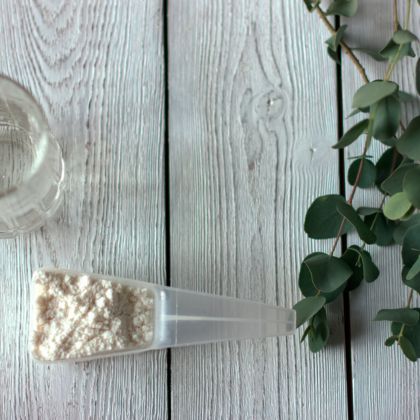 Nutritional Supplements
Nutritional SupplementsWhen taken with other nutrients, they can increase the utilization and conversion rate of other nutrients, improve the performance of certain medications, and enhance their efficacy.
 Food Additives
Food AdditivesAs a flavor enhancer in milk powder and child health supplements. Young infants cannot directly supplement L-Lysine through various foods, but their L-Lysine needs are high.
 Pharmaceuticals
PharmaceuticalsFor malnutrition, loss of appetite, and developmental impairment, use under a doctor’s guidance. It can also be used to treat rubella caused by the herpes simplex virus.
 Feed Additive
Feed AdditiveL-Lysine plays an irreplaceable role in the physiological health of cats, making it an essential additive in cat feed.
 Flavoring
FlavoringIn soft drinks, bread, and starch products, it can appropriately supplement the L-Lysine needs of adults.
Benefits of L-Lysine
- L-Lysine is readily soluble in water, making it one of the most easily absorbed amino acids orally. It exists in a free form in the body, making it the most abundant essential amino acid in the body.
- L-Lysine enters the liver through active transport and participates in protein synthesis along with other amino acids, as well as in the formation of D-glucose and lipids, generating energy for the body.
- L-Lysine contributes to the synthesis of carnitine in the body. Carnitine promotes the synthesis of fatty acids in cells, thereby regulating metabolic balance, providing energy, and boosting immunity.
- L-Lysine deficiency can lead to insufficient gastric secretion, resulting in anorexia and nutritional anemia, leading to physical developmental impairment and central nervous system disorders.
- L-Lysine can alleviate the symptoms of herpes simplex infection and inhibit recurrences by disrupting the metabolic balance of L-Lysine and arginine.
If you have any questions about processing L-Lysine, Highassay’s R&D team is here to help.

Sources and Intake of L-Lysine
Foods rich in L-Lysine include: animal foods (lean meats, seafood, eggs, dairy products, etc.); legumes (soybeans, beans, and other soy products); and nuts (almonds, hazelnuts, pumpkin seeds, etc.).
Grain-based foods contain very low levels of L-Lysine, so L-Lysine supplementation is generally not possible from grain-based foods.
Relevant human studies have shown that younger children require higher doses of L-Lysine, especially infants and adolescents. Because infants and adolescents cannot obtain the required L-Lysine through various foods, they must obtain it through supplements, such as those added to infant formula and children’s health products. However, it is important to avoid consuming L-Lysine alone. The recommended daily intake of L-Lysine is 500-3000 mg. This amount varies depending on individual needs, but supplements should be taken at a safe dosage and not for long-term use. Overdose should be avoided to avoid side effects.
L-Lysine and Poly-L-Lysine and Poly-L-Lysine coating
L-Lysine is a single amino acid molecule, while Poly-L-Lysine is a synthetic, positively charged amino acid chain with excellent biocompatibility and antibacterial properties. Poly-L-Lysine coatings can enhance cell adhesion to plastic and glass containers, playing an important role in medical research.
Specification of L-Lysine
| L-Lysine | FACTORY STANDARD |
| Assay | 98.5%~101.5% |
| PH | / |
| Specific rotation[a]D20 | #ERROR! |
| Specific rotation[a]D25 | / |
| Transmittance(T430) | / |
| Chloride(Cl) | ≤0.03% |
| Ammonium(NH4) | ≤0.02% |
| Sulfate(SO4) | / |
| Iron(Fe) | ≤10ppm |
| Heavy metals(Pb) | ≤10ppm |
| Arsenic | ≤1ppm |
| Other amino acids | conforms |
| Ninhydrin-positive substances | / |
| Loss on drying | ≤5.0% |
| Residue on ignition | ≤0.50% |
| Total plate count | ≤ 1000 CFU/g |
| Moulds & Yeasts | ≤ 100 CFU/g |

